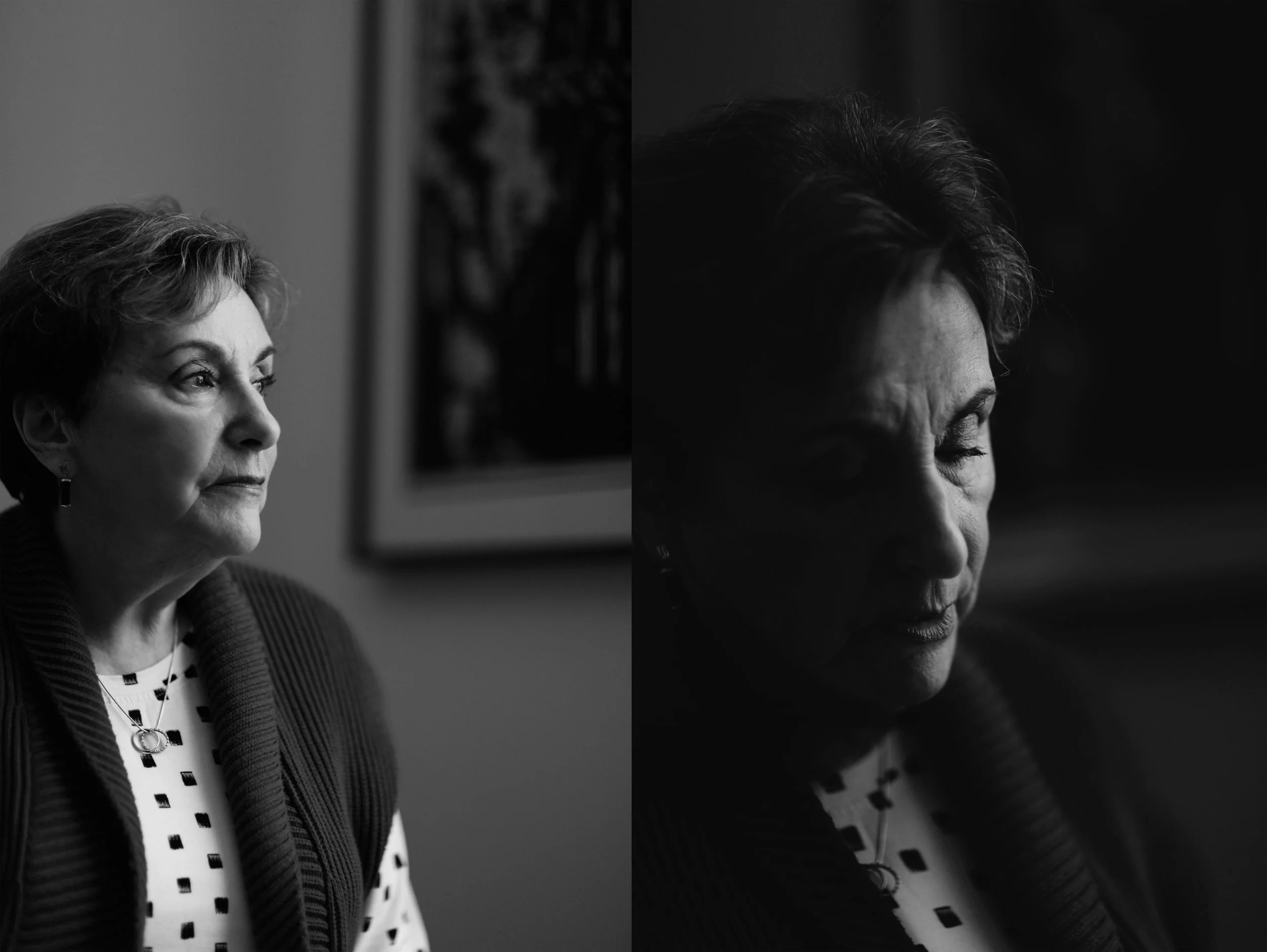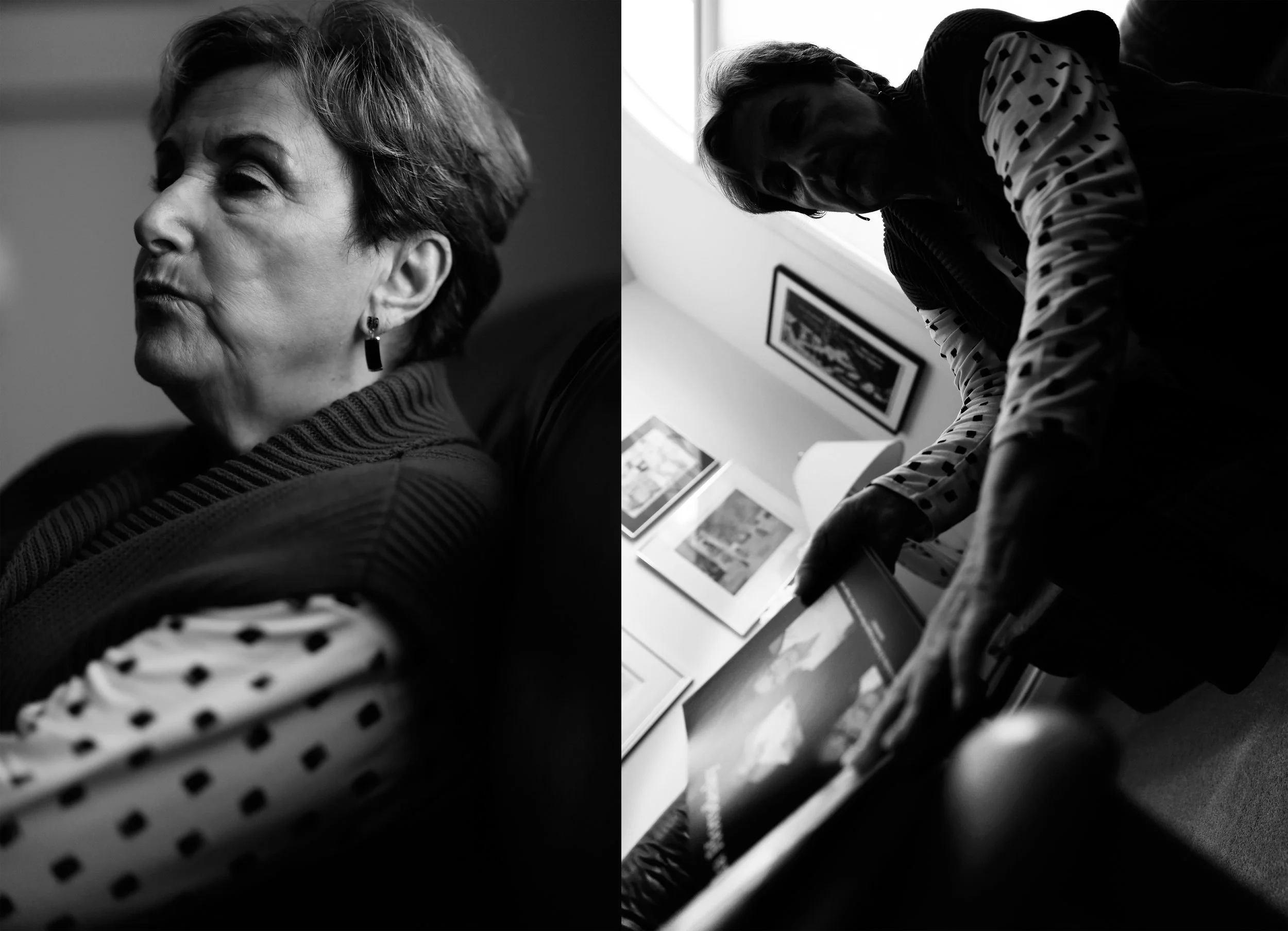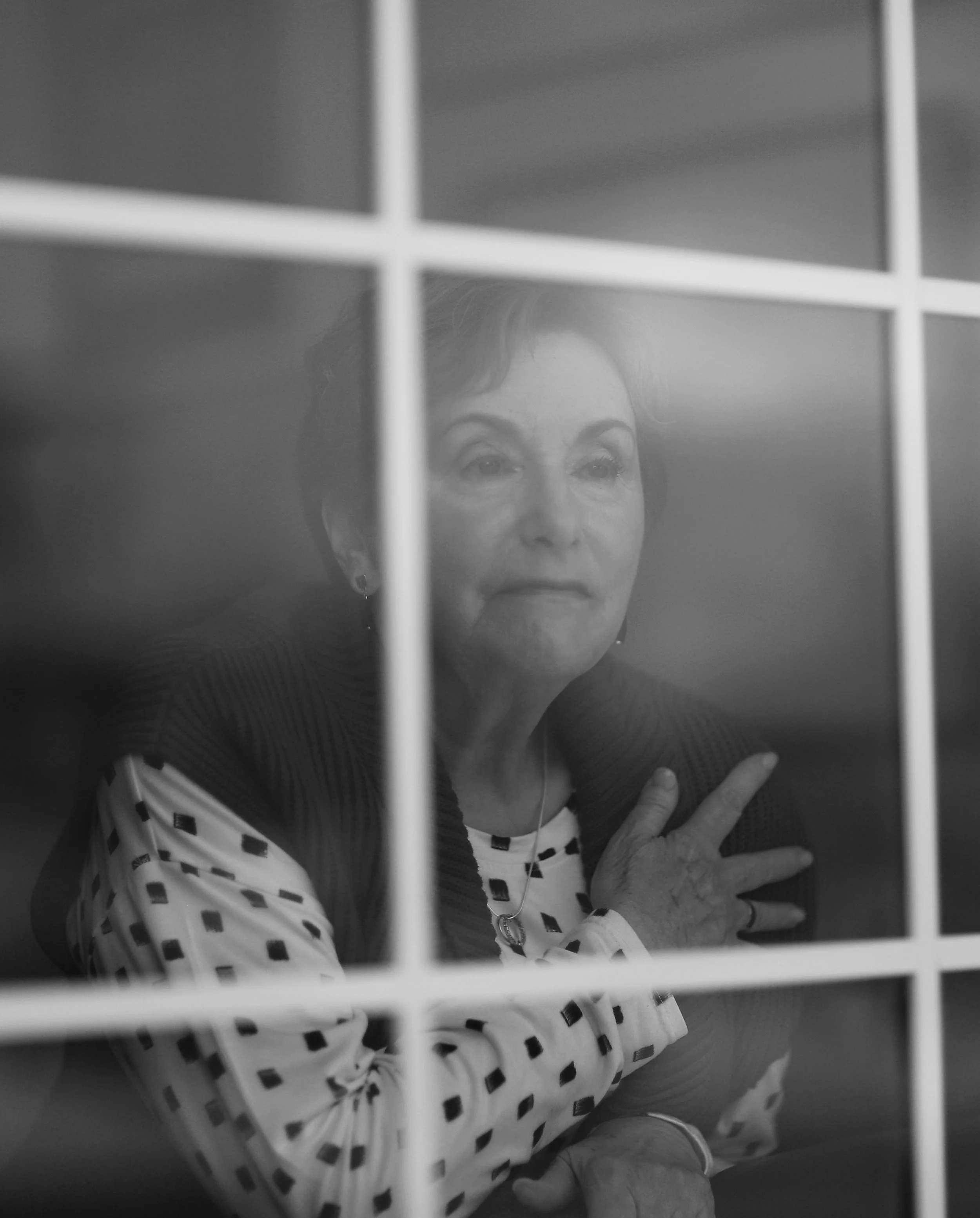Biochemist, GENETICIST, Holocaust Survivor, Hamilton, Canada
Nadia is an amazing woman. Her story reflects true perseverance of the human spirit, despite the most horrific circumstances. Nadia was held in a concentration camp in Terezin (modern day Czech Republic) in 1945. She now resides in Canada, where she was gracious enough to recall much of the ordeal and the hardships that followed and in many ways never left her psyche. Nadia continues to carry the torch of recollections and painful reminders of the terrible losses she endured in presentations she makes to schools in Canada, in part to self-heal and reflect, but also to truly carry on the memory and awareness of the circumstances that shine light on the humanity's lowest and most atrocious acts. Here are some excerpts from her story/writing, and answers to the WOW WOMAN questions.
Before "... After the Slovak National Uprising in August 1944 and when the real occupation by Germans took place, all the exemptions for Jews became null and void and an open hunting season on Jews began. There were dragnets all over the town. We lived very close to the Jewish Center, which was created in 1939 to deal with the matters of the Jewish Community. Unfortunately, the people who worked there had to follow orders of the government, among others, preparing the lists of the people designated for the transports and so on. Now the Gestapo occupied it. In the dark nights, the blackout was in effect, we saw from our second floor window as open dump trucks full of people were driven to the Gestapo headquarters, to be deported the next day. We were standing at the windows with growing fear and dread..."
During "When we arrived in the camp, there were very few people left there. This camp (Theresienstadt concentration camp) was a transit camp. We were not even tattooed because the whole camp, with very few exceptions, was regularly transferred to the gas chambers of Auschwitz...",
"My mother was sorting potatoes, the good ones for the Germans and the guards, the rotten ones for us. Sometimes she was able to steal some potatoes, which was of course strictly forbidden and severely punishable, if caught. She then made for me something like a potato pancake. At least I ate that. Even in these circumstances I would not eat the awful food, which they provided for us. Until today I can taste the rotten barley, which was mixed into the soup, which really was like water. Mother had a tough time trying to make me eat something; she was so worried about me, I was skin and bones. When I got measles, my mother was very scared that the room inspector would presume that my spots were caused by typhoid and send me to the infirmary, which few people came out of..."
After "I was waiting for my Opapa and Omama. Mom did not have the heart to tell me right away that they are not coming back. Later, when she told me, I had a hysterical outburst shrieking that it is not true and that Opapa is coming back…and I was seeing him everywhere. I was running after every older man in the street that reminded me of Opapa from the back. Mom was always holding me by the hand, on the street, but I just yanked my hand out of hers and ran…..", "On the nights when my parents went out, which I still resented, I was babysat by an older captain, who was playing games with me and read to me. He was a very kind man. During our time together, he often said, "don’t be scared, don’t be scared". I was really scared of everything. The fear, which was the prevailing feeling of my very young life, stayed with me until today."
One day a stranger appeared in uniform. it was my father. I was two when we were separated.
I was confused and jealous. After all this time my Mom belonged to me!! I slept with her in bed and suddenly my father, who was really a stranger to me, replaced me. This is how I viewed this new arrangement.
Nadia, with her Mother and Father after the war
1. Name
Nadia Eva Rosa
2. Where is your hometown?
My hometown, Bratislava, is the capital of Slovakia.
3. What is your profession/career/title/self- label/designation?
I am a biochemist/geneticist.
4. What was the journey like to get where you are (in life and career wise)? What are some accomplishments you’re most proud of?
It depends what stage of the journey we are talking about. My studies where not problematic, I think I was a good student and probably ambitious enough to get to finish my Ph.D. I had a good job, which interested me.
5. What did you study in school?
Biology and Chemistry.
6. How is your life different from what you pictured at 20?
Very different! When you make plans or imagine your life at 20, you never count on outside events out of your control, which make those plans void. In 1968, one year after I married, Czechoslovakia was occupied by the 5 Warsaw Pact countries. After my experience in the WWII, I decided to leave the country, because one has to learn from history and we ended up in Canada, with my parents and mother-in-law.
7. What was your biggest disappointment and plan to overcome it?
Again sometimes life throws you a curve ball. I gave birth to a beautiful little girl, who was diagnosed with Juvenile Diabetes at 16 months. I did not have a plan to overcome this disappointment, but you have no choice only to live the best you can. Plans for going back to work after 2 years and continue my career where gone, because my daughter needed me. My husband is a scientist too and at this junction you have to really look without prejudice and selfishness, who has the potential to make a bigger career and contribute more. It had nothing to do with the gender, only with the comparison of accomplishments so far.
8. Advice for other women?
If you want to have children, do not underestimate yours and your partners genetic background before you get married. Maybe even if you have some abnormalities in one or the other family, you might get married and hope for the best, but if something happens it will not be such a shock. Many times I asked myself if we would have gone for genetic counseling, would we have married or would we make a decision not to have children.
9. Knowing what we know now in current political climate, can women be "all that we can be" in today's world? What is the way forward, as you see it for "feminist values"?
This is a hard question to answer, it is starting to be so broad, with all kinds of implications. I for myself never thought that being a woman stopped me from doing anything. I am very practical, good with my hands in all repairs at home, much better than my husband. I never felt being less than a man. But that is what I feel. The feminist movement did also a lot of negative things for women. You had to be good in everything, at work and at home. Nobody asks that from a man. Women who achieved a big career had to do so for a price. The price is usually the children.
10. Where in the world do you feel “tallest” (i.e. where is your happy place)?
At this age I am happy to be at home, I am happy in my company…Tall or short!
11. What extra-curricular activities/hobbies are you most proud of? Why?
I conduct the Holocaust Education for Students and very much hope something will stick. I aIm to help make this society more tolerant, with ability to stand up for the right thing.
12. What do you want to be when you grow up? Future goals/challenges?
I don’t think I have time to grow up more! LOL
13. What fears are you still hoping to overcome?
By now I learned to live with my fears, every day which I live, I overcame my fears.
14. Anything you'd do differently if you had another go at life?
Absolutely! But life is not a movie, where you have a choice to go one way or the other! You choose and then live with the consequences of that choice and make the most of it!
15. What inspires you?
Art.
16. What are you hopeful about?
I hope I will not suffer dying!
17. What are some ingredients to a good life?
Self confidence, not being jealous of material things, but have enough money to make your life comfortable. That of course is a very relative term. For someone is comfortable being very rich, for another just enough to take care of basic needs.
18. What advice would you give your 14-year-old self?
Do not worry what others think of you and don’t bend your principles.
19. What are you reading now? (what books do you gift most and what are your favourite reads?)
I love to read non-fiction books, so I joined a book club, to make me read fiction. I just finished a wonderful book “The Hero’s Walk” by Anita Rau Badami.















